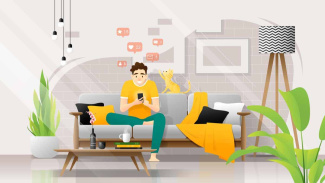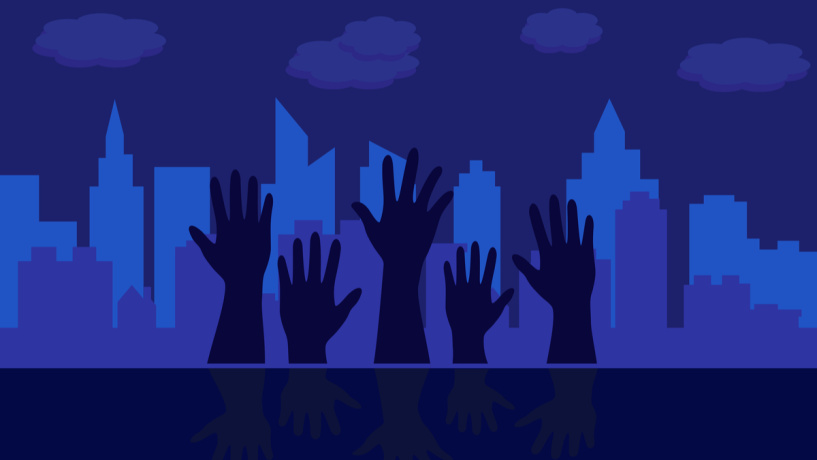It’s Not All Bad: Effects of Social Media Depend on How It’s Used

Headlines about the negative effects of social media on its users have become common in recent years. The reality, however, is more complicated.
University of Michigan Professor Ethan Kross recently coauthored a paper reviewing the wealth of research on the subject, and he discussed its key findings.
Your paper concludes that the effect of social media use varies, depending on the way people use it. One common use you discuss is “self-presentation”; what does that mean, and what are its effects?
Kross: It’s presenting the world with a curated snapshot of ourselves. We're always engaging in self-presentation to some extent, including offline. But social media allows people to do it in ways that we cannot do in daily life, because we can take multiple pictures of ourselves and then Photoshop them to get the perfect snapshot and carefully edit what we reveal.
Engaging in this self-presentation exercise can make you feel good. There's some data showing that when you look at your own posts, timelines, or pictures, that actually improves the way people feel. It provides people with an ego boost of sorts: "Oh, wow, those vacation photos look great." And people can actually use that to make themselves feel better when they're stressed.
But the issue is that other people are looking at those curated snapshots that you're presenting. They are continually exposed to the glorified lives of others: “Wow, these people are having fun. And my life doesn’t seem as great by comparison.” That leads people to feel envy, which can undermine their well-being.
The other use for social media that the paper addresses is sharing of emotion. What are the effects on people who do that?
Kross: When people experience emotions, they’re usually intensely motivated to share them with other people. Other people can validate what we’re feeling.
Sometimes, if we have negative feelings, sharing them on social media can provide us with emotional support from our network. In fact, we did a study where we found that people struggling with depression actually received more support than their non-depressed counterparts on social media. That was interesting because in daily life, it's usually the reverse: People who are depressed get less support.
On the other hand, we also see how sharing negative emotions in the form of moral outrage or cyberbullying can have consequential negative implications for other people's lives. Cyberbullying is a major concern; increasingly, trolling and the expression of moral outrage are as well. So that's yet another instance of how using social media can have positive or negative consequences depending on how and why you use it.
How else does sharing of emotion differ between online and offline interactions?
Kross: In the offline world, when we experience an emotion, we want to share it, but we have to find someone to share that emotion with. That can often take time. We need to find someone to talk to, and in the process of waiting to find that person, our emotions often subside.
There are also non-verbal and verbal cues that constrain how we share our emotions when we talk offline. We see facial displays that prevent us from being overly aggressive, because we see we're hurting someone else.
Social media makes it easier for us to share our emotions at their peak. And none of the safeguards that constrain the way we talk to other people about our emotions are present. That means many of the evolutionary safeguards that have developed to make sure we don't act like jerks all the time, which are present in daily life, are largely absent on social media.
Does the amount of time that someone spends online have an impact on these effects?
Kross: There have been a few intervention studies which have shown that if you lead people to abstain from using social media or simply reduce the amount of time they spend on it, that can lead to positive consequences.
Are there differences in which platform is being used on creating these effects?
Kross: That's a big open question. The majority of the work in this space has been done on Facebook. More work is needed to understand how different platforms impact well-being.
What other big questions remain?
Kross: Right now the challenge is to use what we know about psychology, communications, and information to identify the behaviors that promote healthy versus harmful forms of social media interaction. That's where I think scientists have the opportunity to really have impact. If you can identify basic principles that explain when interacting with social media will impact people for better or worse, then we have the potential to help countless lives.









